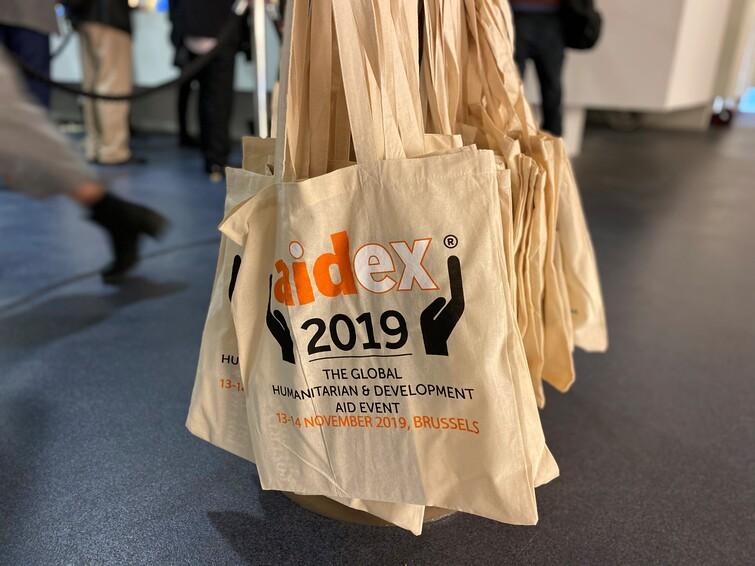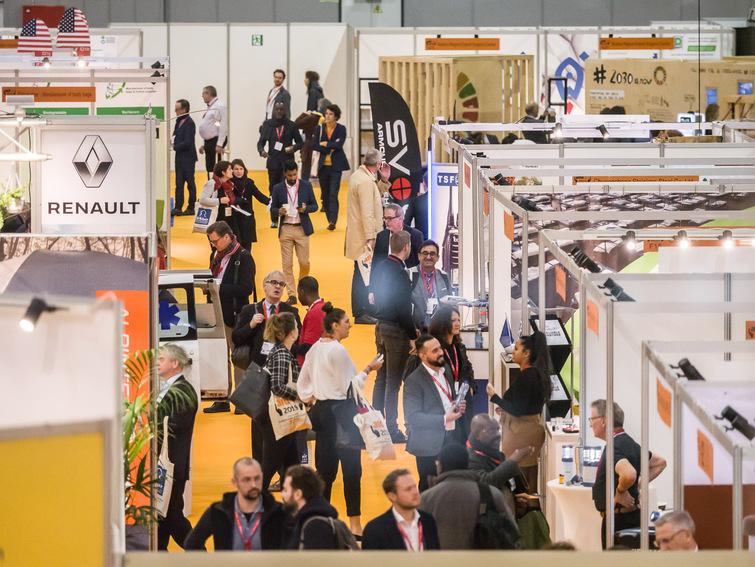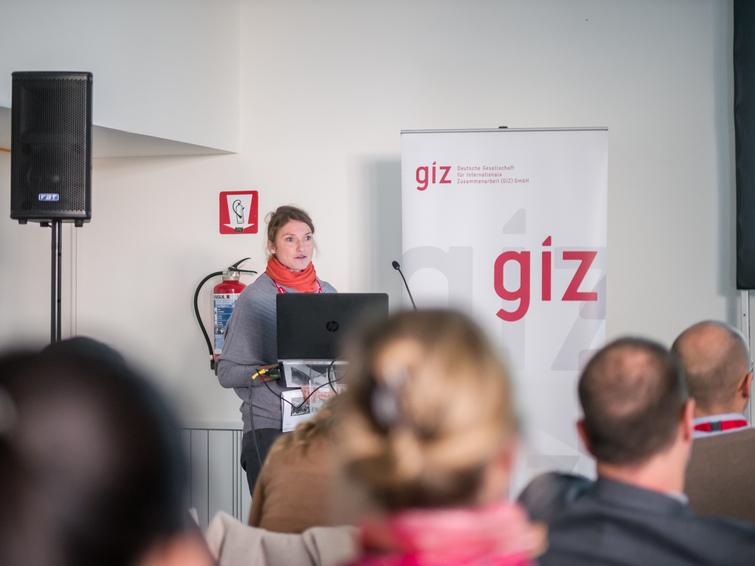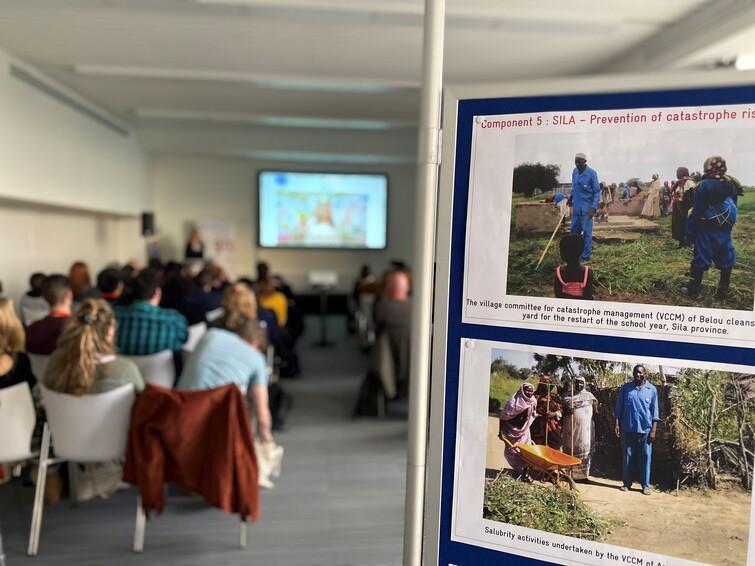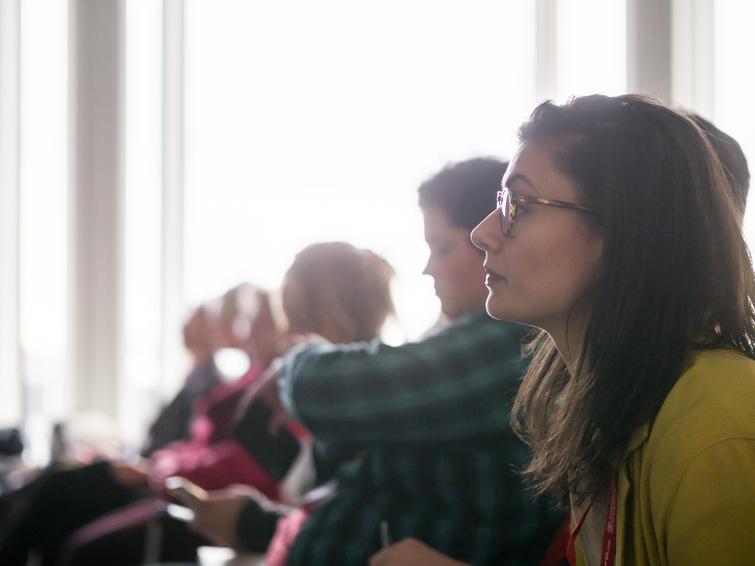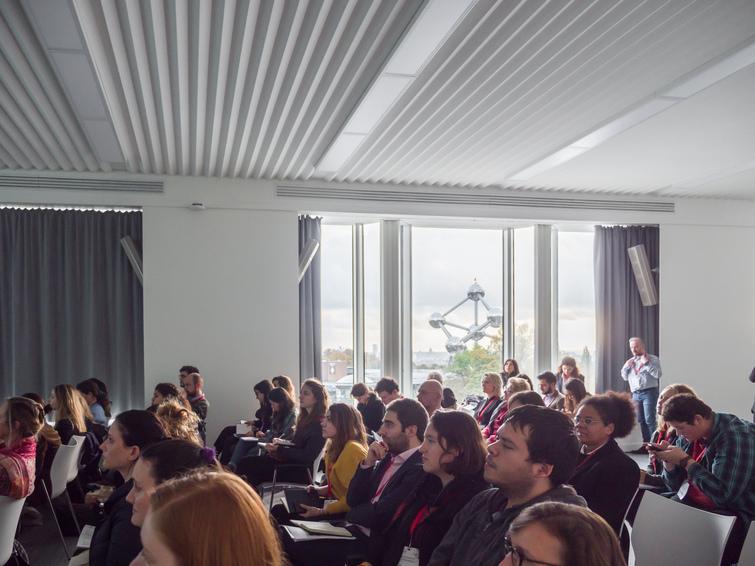GIZ@AidEx: Showcasing Transitional Development Assistance in Chad and Turkey
GIZ organised its first-ever session at AidEx, showcasing examples of how Germany and the EU are bridging humanitarian aid and development cooperation in practice to #LeaveNoOneBehind.
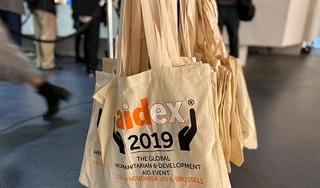
For the last nine years, AidEx has served as an important annual platform for the humanitarian community. This year, the conference focused on the topic of inclusiveness and whether the aid and development sectors are doing enough to #LeaveNoOneBehind in the context of the 2030 Agenda.
Given the relevance to our work, GIZ this year organised its first-ever session at AidEx, in order to showcase examples of how Germany and the EU are bridging humanitarian aid and development cooperation in practice.
Using the expertise of a diverse team of colleagues from Ankara, Berlin, Brussels, Eschborn and N’Djamena, GIZ presented the implementation experience from two BMZ Transitional Development Assistance and EU co-funded projects, the Community Centres and Local Initiatives Project (CLIP) in Turkey and the Programme to strengthen resilience and peaceful coexistence (PRCPT) in Chad, to the AidEx audience in Brussels on 13 November 2019.
In the session “Building Bridges: The Humanitarian-Development-Peace Nexus in Practice”, opened by Siegfried Leffler, Head of the Representation Brussels, the participants were introduced to the BMZ’s Transitional Development Assistance (TDA) instrument by Manuel Fürstos, Technical Adviser for Transitional Development Assistance Projects (FMB), followed by insights from the field from Kristina Maria Willebrand, Head of Project, CLIP, and Johanna Dicklberger, Project Advisor, PRCPT. Both projects illustrate the successful alignment between German and EU cooperation.
Kristina Willebrand introduced the audience to CLIP, a project that is a first-of-its-kind collaboration between EU Humanitarian Aid (DG ECHO) and BMZ TDA, in an effort to combine humanitarian and development funds to achieve the joint objective of strengthening resilience of individuals and communities. The project has set up the Local Initiative Fund in Turkey (LIFT), a funding mechanism that supports local initiatives that offer services to particularly at-risk groups, as an instrument to localise funds and access those who have not yet been reached by the international community.
Johanna Dicklberger presented the PRCPT project in Chad, which is funded by the EU Emergency Trust Fund for Africa and BMZ. Following the TDA approach, the project combines immediate, medium and long-term measures and building capacities on multiple levels and hence, showcases a dynamic link between humanitarian aid and long-term development cooperation. Through PRCPT, GIZ is strengthening resilience and peace through an integrated approach which focuses on building livelihood, infrastructure, peace and disaster-coping capacity.
The session attracted much interest and was well-attended. Over 70 practitioners and representatives from the humanitarian aid and development sector seized the opportunity to listen to the insights and experiences from the GIZ colleagues. During the Q&A, AidEx attendees were eager to hear more about the sustainability and target groups of the projects as well as the monitoring and reporting mechanisms.
Links
